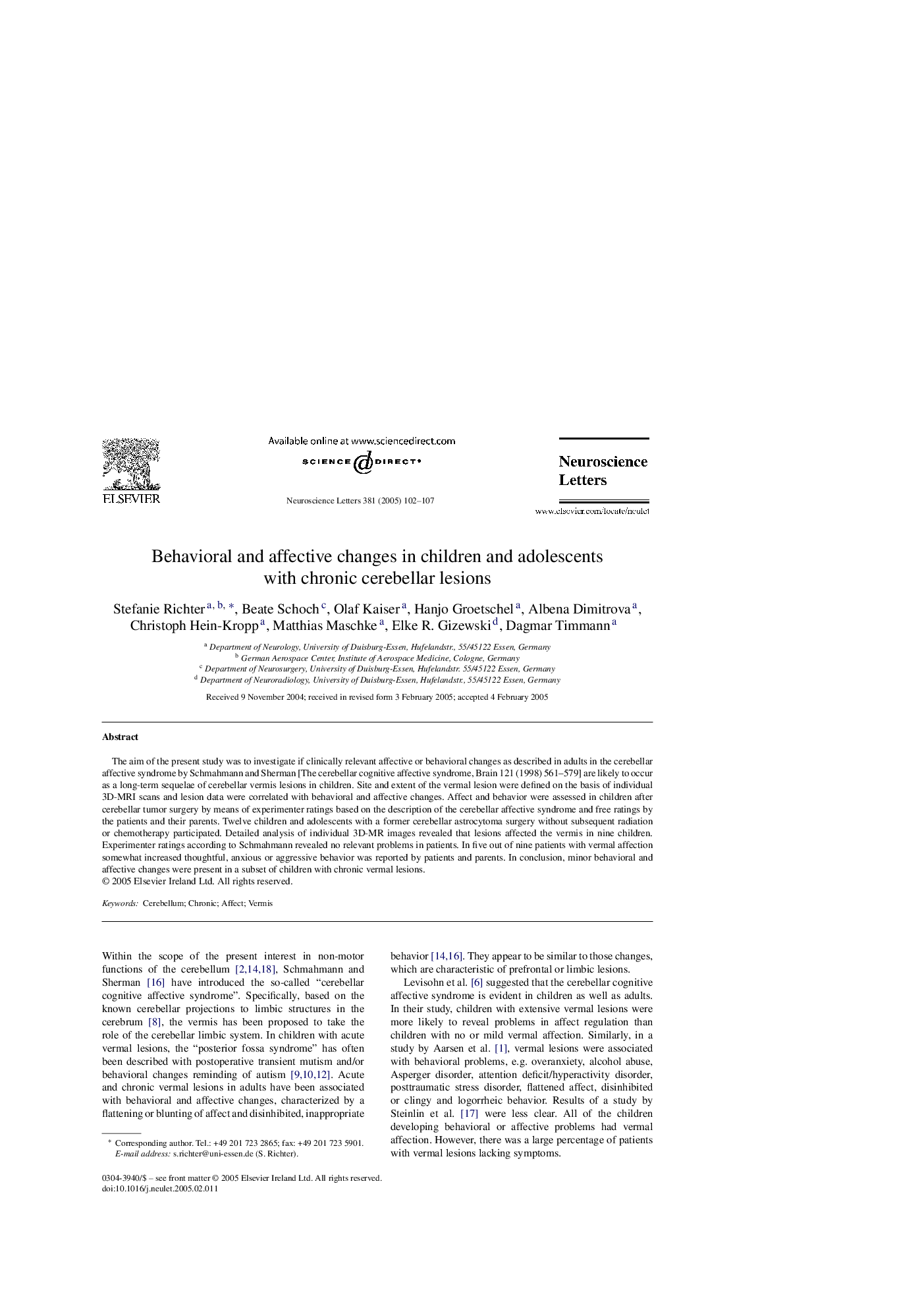| Article ID | Journal | Published Year | Pages | File Type |
|---|---|---|---|---|
| 9429682 | Neuroscience Letters | 2005 | 6 Pages |
Abstract
The aim of the present study was to investigate if clinically relevant affective or behavioral changes as described in adults in the cerebellar affective syndrome by Schmahmann and Sherman [The cerebellar cognitive affective syndrome, Brain 121 (1998) 561-579] are likely to occur as a long-term sequelae of cerebellar vermis lesions in children. Site and extent of the vermal lesion were defined on the basis of individual 3D-MRI scans and lesion data were correlated with behavioral and affective changes. Affect and behavior were assessed in children after cerebellar tumor surgery by means of experimenter ratings based on the description of the cerebellar affective syndrome and free ratings by the patients and their parents. Twelve children and adolescents with a former cerebellar astrocytoma surgery without subsequent radiation or chemotherapy participated. Detailed analysis of individual 3D-MR images revealed that lesions affected the vermis in nine children. Experimenter ratings according to Schmahmann revealed no relevant problems in patients. In five out of nine patients with vermal affection somewhat increased thoughtful, anxious or aggressive behavior was reported by patients and parents. In conclusion, minor behavioral and affective changes were present in a subset of children with chronic vermal lesions.
Keywords
Related Topics
Life Sciences
Neuroscience
Neuroscience (General)
Authors
Stefanie Richter, Beate Schoch, Olaf Kaiser, Hanjo Groetschel, Albena Dimitrova, Christoph Hein-Kropp, Matthias Maschke, Elke R. Gizewski, Dagmar Timmann,
